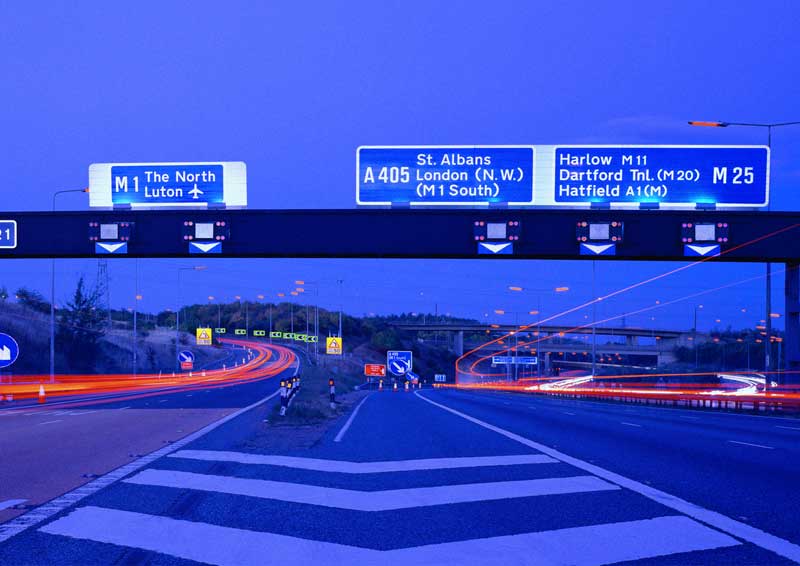Brexit - the case for infrastructure
On 8th July 2016, the Institution of Civil Engineers (ICE) published a two-page summary report 'Brexit - The case for infrastructure'. The report highlights the valuable contribution which infrastructure makes to the UK economy.
It suggests that high quality, high-performing infrastructure is vital for economic growth and improved quality of life. It points to transport, communications, energy and housing as central to spreading opportunity across the whole country. It also makes the case that infrastructure acts as a catalyst for social and economic inclusion, encouraging greater participation in society from people of all walks of life.
During uncertain or volatile economic times, continued investment in UK infrastructure can help provide economic stability, facilitate inward investment and drive economic growth.
The report highlights the fact that for every £1 of infrastructure spending, economic activity increases by £2.84, with the construction industry contributing a huge £103bn in economic output, 6.5% of the UK total. Infrastructure also creates a large number of jobs for the UK, 2.1 million in 2015 representing 6.2% of the total. Every 1,000 direct jobs created by the delivery of new infrastructure boosts wider employment by more than 3,000.
It praises the revival that infrastructure has enjoyed since the financial crisis, with a better understanding of the long term strategic case for infrastructure investment and delivery across the political divide. But, the UK still sits just 24th in the World Economic Forum Global Competitiveness infrastructure rankings, behind a number of our economic competitors including Japan (7th), France (10th) and Germany (12th).
The report calls on Government to commit to infrastructure during its negotiations with the EU and to continue to place infrastructure investment at the heart of economic policy. It suggests the Government must continue to invest in long term infrastructure programmes and support the National Infrastructure Commission. It also calls on Government to continue to place infrastructure at the heart of its plans for devolution, as set out in its recent State of the Nation: Devolution report.
The report follows ICE's announcement that, led by the Royal Academy of Engineering, it will be co-operating with the other 37 organisations representing the engineering profession to ensure that the needs of all sectors that have a dependence on engineering are represented and understood..
--The Institution of Civil Engineers
[edit] Related articles on Designing Buildings Wiki
- Architects' Brexit statement.
- Articles by ICE on Designing Buildings Wiki.
- Benefits, not cost, should be focus of key infrastructure projects.
- Breaking Barriers in Infrastructure - perspectives from the profession
- Brexit.
- Brexit Topic Guide.
- EU Referendum - Environmental and climate change consequences for the built environment.
- Future finance - paying for infrastructure after Brexit.
- How good infrastructure can create a sense of place.
- Infrastructure contracts: tailor-made or off-the-shelf?
- Infrastructure nationalisation.
- Levelling up the infrastructure agenda.
- Long term, strategic approaches to infrastructure planning.
- National infrastructure plan.
- National Needs Assessment NNA.
- Northern Ireland closer to creating infrastructure advisory board.
- HVAC and smart energy post-Brexit.
- Key Brexit challenges facing infrastructure and construction.
- Overcoming the challenges of Brexit.
- Post brexit, house building and construction remains a safe sustainable industry.
- Post-Brexit vision for construction.
- Safeguarding infrastructure post-Brexit.
- The UK - Sports capital of the world?
- Triggering article 50 of the Treaty of Lisbon.
- What does Brexit mean for construction?
- What should be in the National Infrastructure Strategy?
- Will Brexit shake UK construction?
Featured articles and news
Restoration and renewal of the Palace of Westminster
A complex project of cultural significance from full decant to EMI, opportunities and a potential a way forward.
Apprenticeships and the responsibility we share
Perspectives from the CIOB President as National Apprentice Week comes to a close.
The first line of defence against rain, wind and snow.
Building Safety recap January, 2026
What we missed at the end of last year, and at the start of this...
National Apprenticeship Week 2026, 9-15 Feb
Shining a light on the positive impacts for businesses, their apprentices and the wider economy alike.
Applications and benefits of acoustic flooring
From commercial to retail.
From solid to sprung and ribbed to raised.
Strengthening industry collaboration in Hong Kong
Hong Kong Institute of Construction and The Chartered Institute of Building sign Memorandum of Understanding.
A detailed description from the experts at Cornish Lime.
IHBC planning for growth with corporate plan development
Grow with the Institute by volunteering and CP25 consultation.
Connecting ambition and action for designers and specifiers.
Electrical skills gap deepens as apprenticeship starts fall despite surging demand says ECA.
Built environment bodies deepen joint action on EDI
B.E.Inclusive initiative agree next phase of joint equity, diversity and inclusion (EDI) action plan.
Recognising culture as key to sustainable economic growth
Creative UK Provocation paper: Culture as Growth Infrastructure.
Futurebuild and UK Construction Week London Unite
Creating the UK’s Built Environment Super Event and over 25 other key partnerships.
Welsh and Scottish 2026 elections
Manifestos for the built environment for upcoming same May day elections.
Advancing BIM education with a competency framework
“We don’t need people who can just draw in 3D. We need people who can think in data.”
























